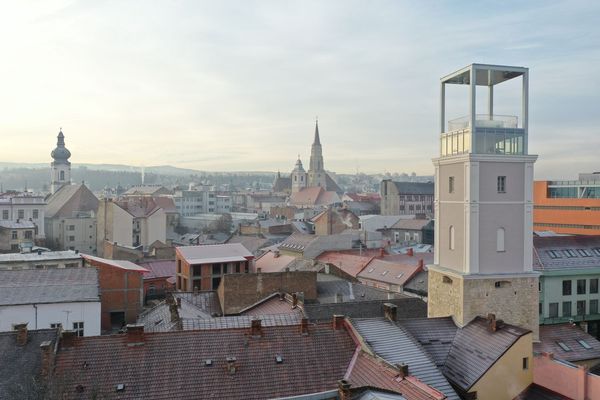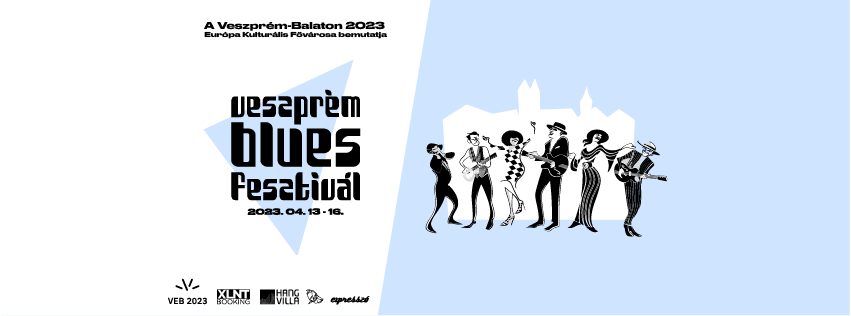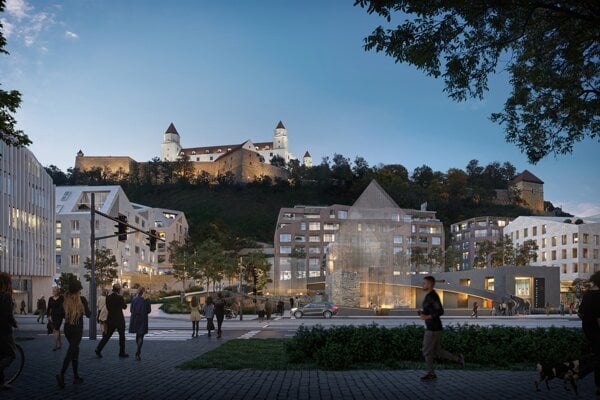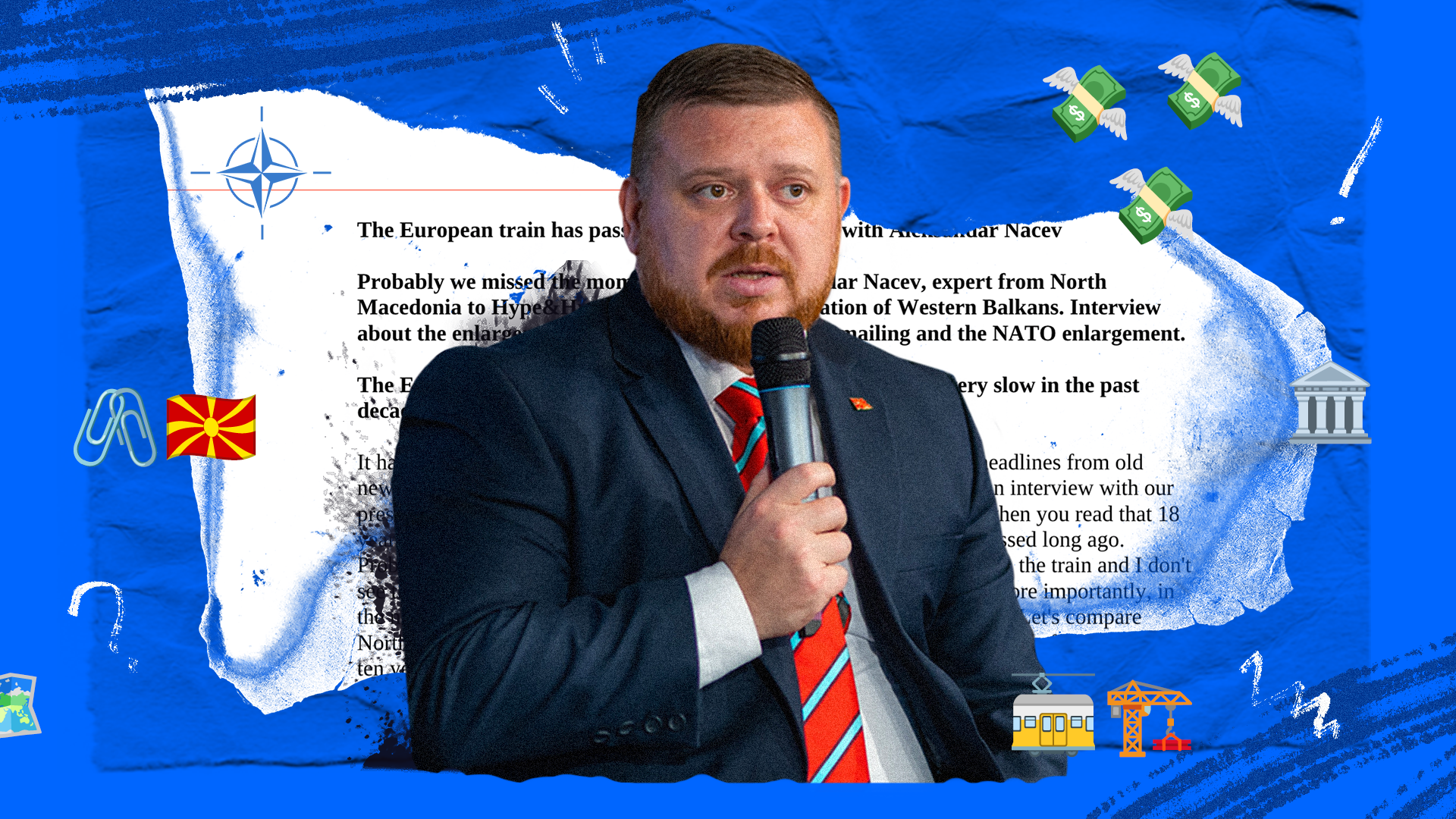Probably we missed the momentum—told Aleksandar Nacev, an expert from North Macedonia to Hype&Hyper, about the EU integration of the Western Balkans. Interview about the enlargement fatigue, the Bulgarian blackmailing, and the NATO enlargement.
The European integration process of the Western Balkans got very slow in the past decade. Are you getting tired too?
It has been a very long and exhausting process. I was reading headlines from old newspapers just a few days ago, and I found a headline from 2005 from an interview with our president. In 2005 he said: “We finally caught the European train,” and when you read that 18 years later, it seemed that we were still at the station and the train had passed long ago. Probably we missed the momentum on where we were supposed to get on the train, and I don't see that train coming back to that same station in the next few years or, more importantly, in the next decade. If we compare the amount of time integration is taking… Let's compare North Macedonia to Montenegro. The process in Montenegro has been going on for more than ten years. They have opened a relatively small number of chapters, and there is a kind of dissatisfaction with the way the process is going. Now getting back to North Macedonia, we can also say that we have been experiencing enlargement fatigue. We are fatigued by waiting for so many years and just sitting on the sidelines, being in the waiting room. North Macedonia has been a candidate country for more than a decade; during the process, we made some improvements, like visa liberalization in 2009, but the enlargement fatigue can be experienced in the society. There are a lot of projects implemented, and a lot of those institutions receive funding, but still, it seems like we are stuck in one place; we are not moving forward. We are always getting promises which always have some conditions with them. Now, we have this problem with Bulgaria, and we are stuck in the process of negotiations and achieving the parliamentary majority for constitutional changes. It's a pretty complicated situation.

Could you give us more insight into the Bulgarian problem?
Bulgaria has two issues. The first issue is the common history. Bulgaria is trying to reshape history because they're having problems with a lot of monuments and textbooks that say that Bulgaria was a fascist country during World War II and occupied North Macedonia, which is a fact everywhere else in the world. We have a bilateral historical commission that is trying to rewrite some parts of our history and not present the Bulgarians as the occupiers. Not long ago, there was the Memorial Day of the deportation of the Macedonian Jews to Treblinka that was done under Bulgarian authority during World War II. The Bulgarians are trying to get rid of this fact, but still, you cannot rewrite history. The second is the Macedonian minority in Bulgaria, which is significantly large, and they do not recognize it even though there are ten verdicts from the international courts that they should allow the registration of Macedonian political parties and NGOs.
That’s quite a hard dispute. If it is not going pretty well, what are the alternatives to European integration in the Balkans? Chinese investment, Russian influence, perhaps a federal system of its own?
No, because the latest polls indicate that still, a very large part of the population is in favor of joining the EU. That number was several years ago, 80 to 83%. It just fell a little bit, but it is still above 70%, which shows that most people are not looking for alternatives. 90% of the big political parties are in favor of integration after we became NATO members. Now the EU integration is the next step, and there is no significant turning towards different alternatives because different alternatives are nonexistent. There's no alternative at all.
Hungary is one of the main supporters of enlargement in the Balkans. Is it an advantage?
I consider it very beneficial.
Why?
Because it's an unwritten rule that, for example, when you're trying to also become a NATO member, it's significant to have someone right at your back, helping you in different fields, trying to demolish all the obstacles that are on the way. That's why it's very important to get support. When you look at our region Slovenia was the first one to make it to the club. Romania and Bulgaria became members when it was strategically important for those two countries to get inside. Cyprus came with the support of Greece – it's always beneficial to have someone behind your back. It's crucial in the Western Balkans to have someone who will help us lead the way. It's not just Hungary; we have a lot of help from Croatia and Slovenia, too, because of our Yugoslavian past. Once, we were part of the same country: there has never been a quarrel between us, but unfortunately, the two other neighbors – Greece and Bulgaria – have open questions with us. The Greece case is resolved. Unfortunately, we paid a heavy price to get that issue closed because we renamed our country to North Macedonia. Now we are also on the way to paying an even heavier price in the second Bulgarian instance.

North Macedonia joined NATO in 2020, which gives a security umbrella. Have you experienced any economic development since then due to a safer investment environment?
No, not enough because the largest influx of foreign economic investments to North Macedonia was done in the period from 2006 to 2011. In 2006 the Christian Party came into power, and they started working on foreign investments. 80% of the factories that are still active today in North Macedonia were open during those years. They're large investments, factories that employ 4000-5000 people. The government created a campaign, it was called ‘Invest in Macedonia’; we had a specific minister for foreign investments, and we were not expecting that becoming a NATO member would significantly increase the investments. It is obvious that all the companies want to be in a secure spot, maybe a little more is convinced now, but 80% of the investments happened before the accession.
As a NATO expert, how do you see Turkey not voting for the accession of Sweden and Finland to join NATO? What political processes might be at play?
Nothing complex and nothing unexpected because I always tell my students: the only constant in international relations is your own interests. Each of the countries in the world is guided by that same principle. You do what is best for you. We can be friends, we can be partners, we can be supportive of each other, but when your national strategic interests come into play, that's what you protect, and that's what Turkey's doing now. They have evidence that they're trying to get all those people extradited because of the coup d’état that happened in Turkey, and they have the legal right to do that; they can enforce that right. Someone may label it blackmail; someone may call it smart international politics. It all depends on the stance of the one who is giving the definition.

Restored Firefighters’ Tower reflecting the history of Cluj-Napoca

The most exciting international and Hungarian contemporary blues artists to perform in Veszprém










